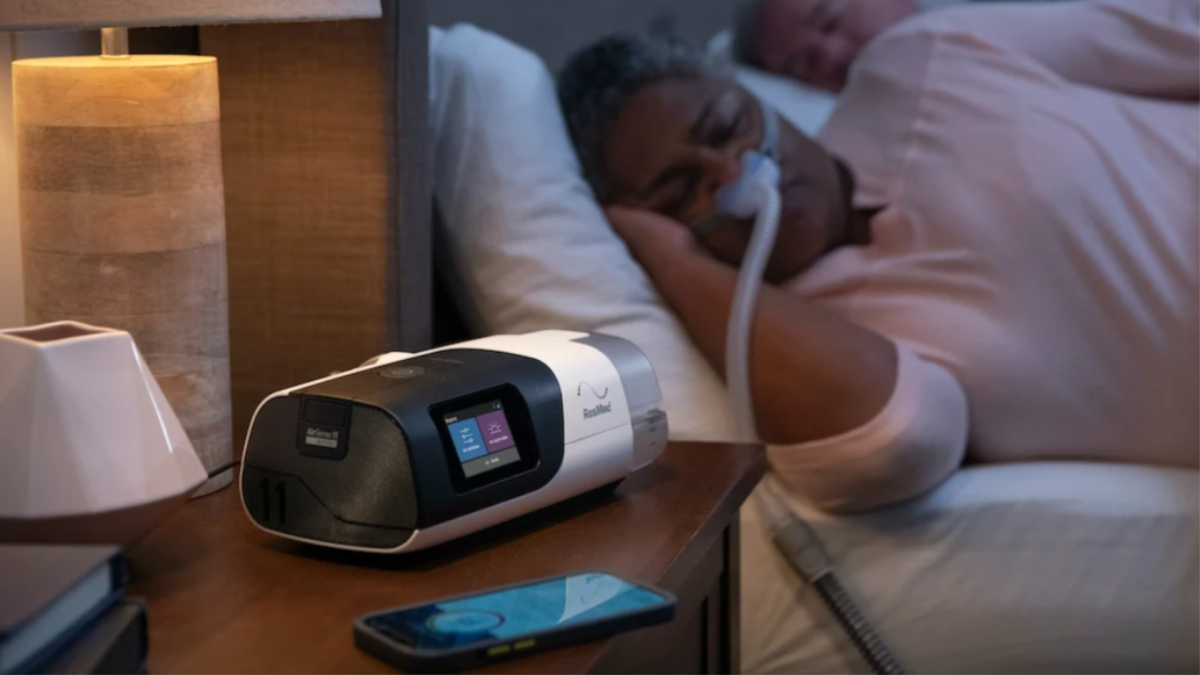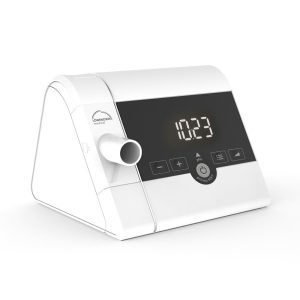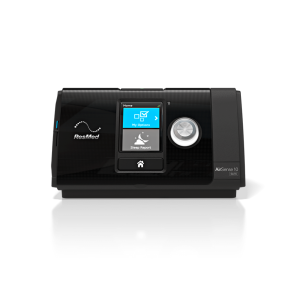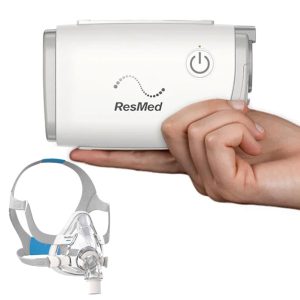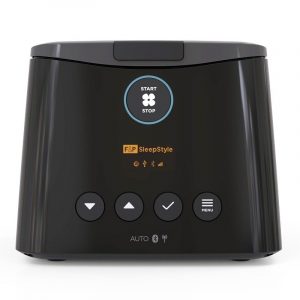Fact Checked
Intus Healthcare’s writers, customer service team, and sleep experts review and ensure this information is accurate.
Last updated on March 18th, 2024 at 03:50 pm
Obstructive Sleep Apnoea (OSA) affects around 10 million people in the UK alone, and around 80% are undiagnosed. The most common form of OSA treatment is CPAP therapy, but BiPAP therapy can also be used depending on the type of Sleep Apnoea.
The way in which the machines work is similar; however, there are some differences. This article will explain the difference between BiPAP and CPAP machines.
BiPAP vs CPAP
CPAP and BiPAP machines are used to keep the airways open using Positive Airway Pressure (PAP). The “pressure” is compressed air used to open and support the airway during sleep, preventing apnoea events (breathing obstructions).
What is the difference between BiPAP and CPAP machines?
The main differences between BiPAP vs CPAP machines:
| CPAP Machine | BiPAP Machine | |
| Typical Cost | £500 – £1000 | £650 – £2000 |
| Pressure Levels | 1 | 2 |
| Typical Pressure Settings Range | 4 to 20 cm H2O | 4 to 30 cm H20 |
| Purpose | The most common treatment for Obstructive Sleep Apnoea | Used to treat more severe cases of Obstructive Sleep Apnoea and/or other underlying health conditions. |
Pros, cons and primary differences exist for both types of breathing machines, for example:
- There are no portable BiPAP machines, unlike CPAP machines that offer various travel devices.
- CPAP machines can be more affordable than BiPAP machines.
- Two pressures are used for Bilevel machines rather than one for CPAP.
- BiPAPs can provide pressure of up to 30.
- Bilevel devices are generally more expensive and more complex to use.
- CPAP machines are primarily used to treat Obstructive Sleep Apnoea.
- BiPAP machines are used to treat severe cases of OSA and other health conditions such as COPD and Pneumonia.
What is a BiPAP machine used for?
BiPAP or BPAP stands for Bilevel Positive Airway Pressure and consists of a mask, tube and machine. They use the same masks as a CPAP machine. BiPAP machines treat different medical conditions that CPAP machines do not.
These machines are called bilevel because they have two separate pressure settings, which include:
- Higher air pressure for breathing in (IPAP).
- Reduced air pressure for breathing out to make it easier to exhale (EPAP).
BiPAP, what is the difference? CPAP vs BiPAP
BiPAP machines can change between three settings based on your breathing: “spontaneous”, “timed”, or a combination of the two.
The spontaneous setting automatically senses the user’s breathing pattern, switching between the two bilevels when inhaling and exhaling.
The timed setting allows the user to program how long each inhalation and exhalation phase should last. This setting functions like a ventilator and allows the user to take the correct number of breaths every minute.
The combination of the two follows natural breathing patterns. Switching from spontaneous to timed when the user’s breathing drops to a certain level.
BiPAP machines can be fixed pressure or auto-adjusting, similar to CPAPs.

Is BiPAP for more severe Sleep Apnoea?
BiPAP machines are used to treat some severe or more complicated disorders that can limit lung function, making it more difficult to breathe out, including:
- Chronic Obstructive Pulmonary Disease (COPD), those who suffer from COPD and OSA (Overlap Syndrome) find that BiPAPs help to balance blood oxygen levels and regulate breathing.
- Amyotrophic Lateral Sclerosis (ALS)
- Obstructive Sleep Apnoea & Central Sleep Apnoea
- Obesity Hypoventilation Syndrome
- Asthma
- Lung disorders or certain neuromuscular disorders.
A BiPAP can significantly lower the pressure when breathing out, making it much easier and more comfortable.
Some health conditions, such as Central Sleep Apnoea, can make breathing cycles irregular. The “timed” pressure switching provided by a BiPAP device can help users keep their breathing regular and consistent.
The other main technical difference when comparing BiPAP vs CPAP is that BiPAP can provide a higher pressure than a CPAP. A BiPAP can typically provide up to 30cmH2O, while CPAP is limited to 20cmH2O.
Bilevel machines can be recommended for those who require more pressure to prevent apnoeas than a normal CPAP machine can provide.
As advised above, your sleep test results will allow your sleep specialist to decide between CPAP vs BiPAP. And whether you have a medical condition that would benefit from the differences that a BiPAP offers.
In most cases, while conventional CPAP provides little to no pressure reduction while breathing out, most people are able to adjust comfortably. Getting used to a new device can take three to four weeks.
What are the benefits of BiPAP?
When prescribed to patients and used correctly, BiPAP machines provide restorative sleep, preventing breathing obstructions and snoring. Gaining quality sleep from using the equipment helps improve many users’ quality of life. Because of the machine’s IPAP and EPAP pressures, BiPAPs make exhalation easier and more relaxed than CPAPs for those with more severe conditions.
What is a CPAP machine used for?
CPAP stands for Continuous Positive Airway Pressure and consists of a mask, tube and machine. There are two types of CPAP machines, fixed pressure and automatic.
A fixed-pressure machine stays at one pressure level throughout the night and is prescribed by a doctor or sleep technician.
An automatic machine (APAP) adjusts the air pressure whilst the user sleeps, depending on how the user breathes. For example, the pressure will increase when a patient moves into a position affecting their airflow. You will need an automatic machine if you are not given a specific pressure setting.
Benefits of a CPAP machine
When CPAP machines are prescribed as a treatment for Sleep Apnoea, they significantly reduce breathing pauses and obstructions. Allowing patients to sleep comfortably without interruptions. When used correctly, the devices leave users waking up refreshed, stopping snoring and improving their cognitive functions. Many people describe their machines as life-changing.
Do I need a CPAP or BiPAP?
The machines are similar but your condition will determine which is best for you. Whichever device you need should be determined by your healthcare provider before purchasing a machine. Although the machines are very similar, using the correct device will significantly impact the effectiveness of your treatment.
The first step to understanding if you are at risk of having Sleep Apnoea is to complete our FREE Online Sleep Apnoea Risk Test. The risk test takes just 20 seconds to complete and assesses your chance of having Sleep Apnoea. If you are at risk, we advise taking part in a further, more thorough overnight Sleep Study.
Please note that we require documentation when purchasing a device from us.
Which is better, CPAP vs BiPAP?
The machine you require depends on the severity of your Sleep Apnoea and other existing health conditions. Both machines are clinically proven treatments.
Are BiPAP and CPAP masks the same?
CPAP and BiPAP machines use the same masks.
What are the disadvantages of BiPAP and CPAP machines?
Both machines can cause some side effects, but these can be easily fixed. The advantages of treating your condition with the correct machine far outweigh the negatives. We have helpful guides to solving common CPAP machine side effects:
9 Common CPAP Machine Side Effects & How To Fix Them
CPAP Mask Leaks: Simple Solutions
CPAP Therapy: How to stop a dry mouth
In-Home Sleep Apnoea Test
If you are showing signs of Sleep Apnoea and think you need a machine, take an In-Home Sleep Test. Our sleep test experts will assess your sleep data and recommend the best treatment option within 7 to 10 working days.
Don’t panic if you’re new to OSA treatment; it’s more common than you think, and there are alternative treatment options.
There is no need to think about CPAP vs BiBAP or worry about “what should I buy to get the best treatment?” – the specialists that assess your Sleep Test will advise you accordingly.
Contact us for further advice.

